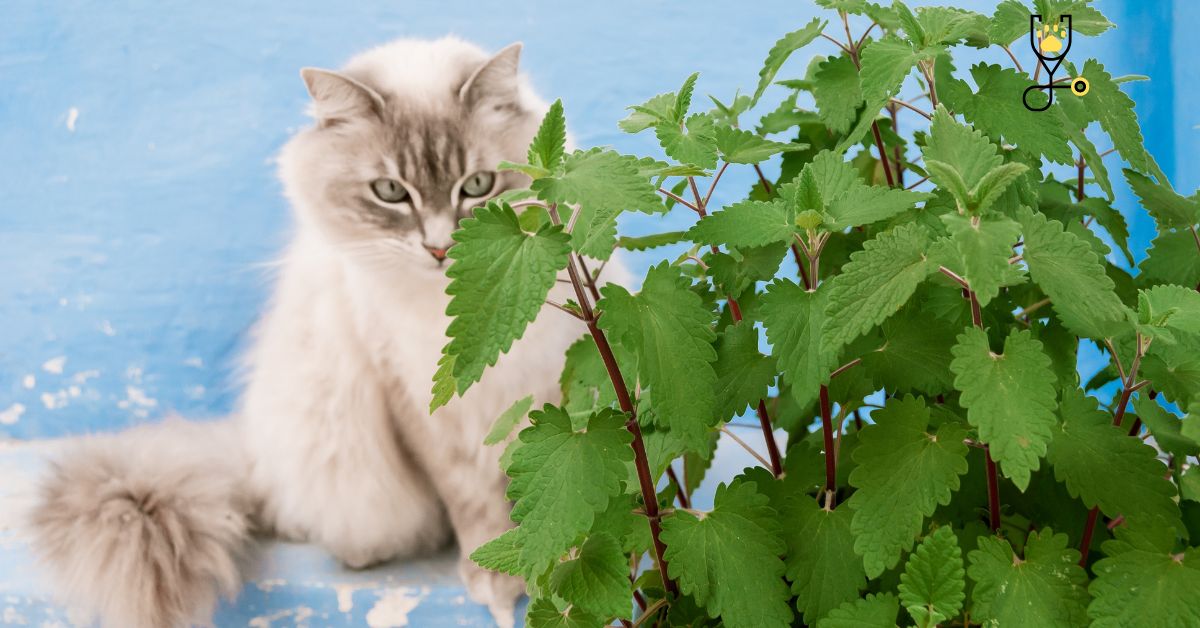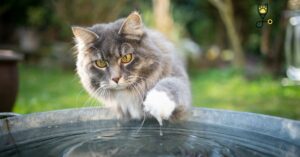There’s something special about catnip that just seems to make cats go crazy. But what is it about this plant that has felines so intrigued? Here are ten reasons why cats like catnip.
1. It’s in their genes.
Catnip is actually a type of mint, and it contains a chemical called nepetalactone that triggers a response in cats’ olfactory receptors. These receptors are what help them smell things and interpret the information they receive from their sense of smell.
2. It’s a natural stimulant.
Catnip works on cats in much the same way that caffeine and other stimulants work on humans: by stimulating their nervous systems. When cats sniff catnip or eat it, they get an energizing, invigorating burst of energy that keeps them going for hours at a time.
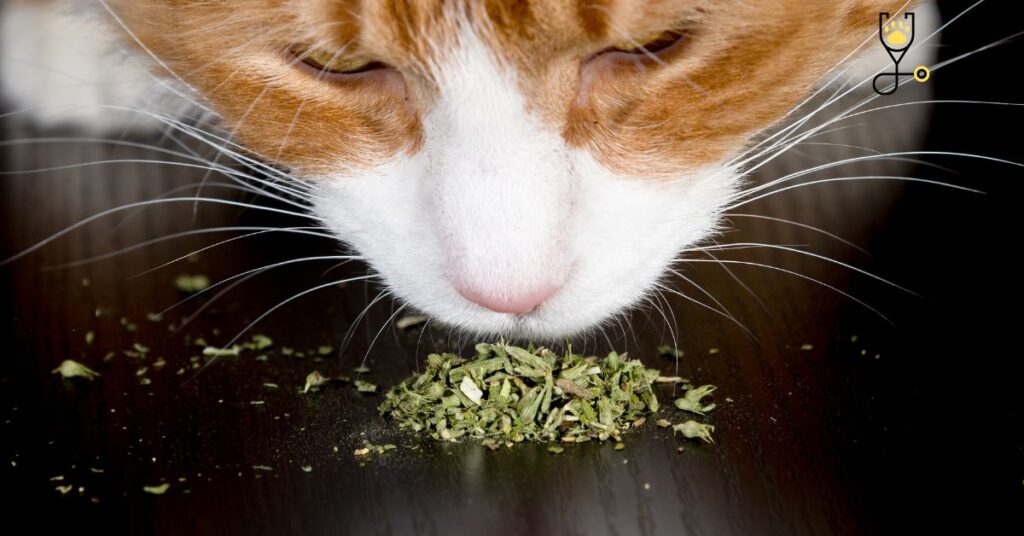
3. It induces feelings of euphoria and happiness.
Along with the increased energy levels, catnip also induces feelings of euphoria and even happiness in many cats. This can make kitties act more playful and frisky than usual, which is why so many cats go absolutely wild over this plant!
4. It mimics feline pheromones.
Another reason why some cats are so obsessed with catnip is that it mimics feline pheromones, which are chemicals that are released from a cat’s body to signal to other animals that they’re in the area and ready for mating or other social interaction.
5. It can have calming effects too.
While catnip does tend to stimulate cats, it also has some slight sedating effects on them as well. This might make cats feel more relaxed and calmer than usual, especially if they tend to be nervous or anxious by nature.
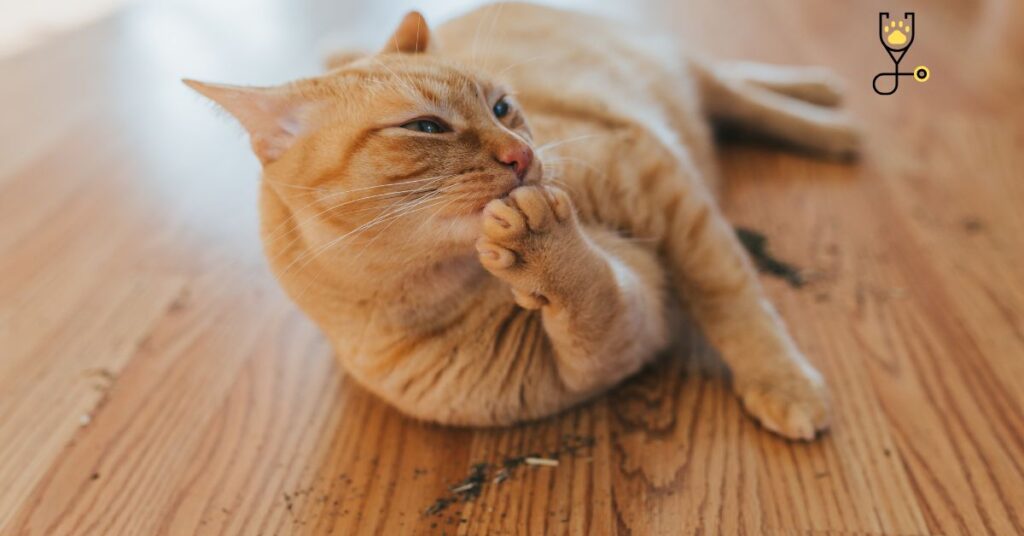
6. Some cats just aren’t affected by it.
Not all cats respond to nepetalactone in the same way—in fact, some cats aren’t affected by it at all. This might be due to differences in their genetic makeup or simply because they haven’t been exposed to catnip long enough for it to take effect.
7. It has medicinal properties.
Many people are also surprised to learn that catnip actually has some pretty powerful medicinal properties as well. These include being able to treat insomnia, anxiety, and even headaches! So if your kitty is struggling with any of these issues, a little bit of catnip just might do the trick.
Learn more: 12 Reasons Why Your Cat Is Rolling Around on Its Back?
8. It can make them act silly or silly too.
One of the most fun things about catnip is watching how our feline friends react when they’re exposed to it. Some cats get really silly and playful, whereas others just act downright goofy. It’s a lot of fun to watch!
9. It can help with behavioral problems.
If your cat is experiencing any behavioral issues—such as excessive scratching or urine marking—catnip might be able to help. Some experts believe that catnip lowers stress levels in felines, which in turn makes them less likely to engage in these problematic behaviors.
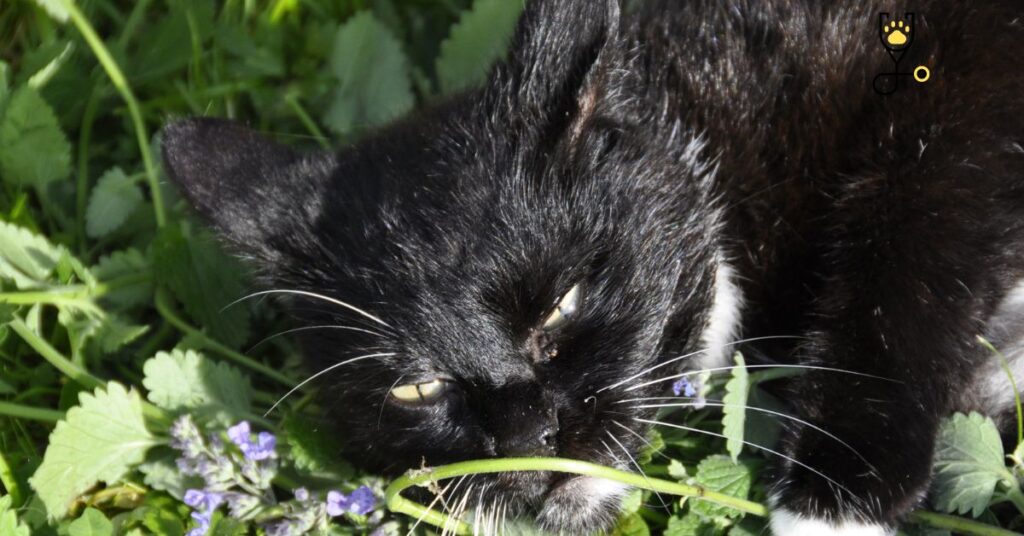
10. It can help with dental problems too.
Last but not least, catnip is actually thought to be able to help with dental problems in cats as well, such as plaque buildup and bad breath. Just make sure your kitty doesn’t eat too much of it or else it could end up causing digestive issues instead!
- So if you’ve ever wondered why your feline friend loves catnip so much, now you know: it’s all thanks to her unique genetics and powerful olfactory system! And if you’re looking for ways to keep your kitty entertained and happy, a little bit of catnip might just do the trick. Give it a try today!
Conclusion
If you’re looking for ways to keep your cat happy and entertained, consider giving them some catnip! This natural plant has a variety of interesting effects on cats, including stimulating their nervous systems, inducing feelings of euphoria and happiness, mimicking feline pheromones, and even having some medicinal properties. However, not all cats respond the same way to catnip, so be sure to watch your kitty carefully when exposing them to it and take note of any unusual behaviors or reactions. And with its ability to help treat behavioral problems and dental issues as well, catnip is definitely worth trying out for any curious cat owner!
Frequently asked questions
A. Catnip is a natural plant that has an interesting effect on cats, stimulating their nervous systems and inducing feelings of euphoria and happiness. It also mimics feline pheromones and has some medicinal properties, making it a great tool for helping to treat behavioral issues or dental problems in cats.
A. Catnip affects different cats in different ways because of differences in their genetic makeup or exposure levels. Some cats may not be affected by catnip at all, while others may respond strongly to even small amounts of it.
A. To introduce your cat to catnip safely, start by giving them a small amount and watching for any unusual behaviors or reactions. Some cats may become overly excited or playful, while others may act more timid or anxious. Be sure to keep an eye on your cat during this process and take note of anything that seems out of the ordinary. Additionally, make sure to supervise your cat at all times when they are exposed to catnip in order to avoid potential ingestion issues.
A. While most cats will tolerate catnip without any problems, some may experience digestive issues such as nausea, vomiting, or diarrhea if they eat too much of it. Additionally, very young kittens or cats with certain health conditions may be more sensitive to the effects of catnip and should not be given the plant. It is always best to talk to your veterinarian before giving your cat any kind of supplement or new food product.
A. Some ways that you can tell whether or not your cat is getting the most out of its catnip include watching for heightened levels of activity, more frequent purring and meowing, and an overall sense of excitement or happiness when around the plant. Additionally, a visible change in your kitty’s grooming habits may be another sign that they are enjoying their catnip!

